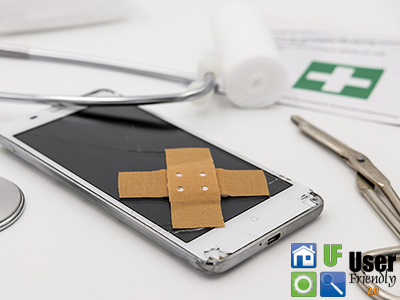By User Friendly 2.0
By: William Sikkens
Host, User Friendly 2.0 Saturday’s at 5:00 p.m.
Did you know that April is the month when you are most likely going to break your phone?
It is unknown why this is the case but statistics show that the likelihood of breaking your phone increases by 17% in April over March. It starts decreasing in May and continues until the following year. This is also true for other mobile electronic devices including laptops and tablets.
The leading cause of damage is smashed screens. Dying batteries and faulty USB ports are next in line. So doing the math over the year, this means you are 56% more likely to break your phone over the next two weeks than the rest of the year.
If you live in Oklahoma, Georgia, and Pennsylvania, maybe consider putting your phone away until May 1 since these states have the highest damage rates.
ChatGPT offers the following advice to keep your device safe:
- Invest in a good quality protective case that fits your mobile phone model. Cases can provide a barrier against accidental drops, bumps, and scratches, which can help prevent breakage.
- Apply a tempered glass or plastic screen protector to your phone’s screen. These protectors can prevent scratches, cracks, and shattered screens in case of accidental drops or impacts.
- Avoid exposing your mobile phone to extreme temperatures, such as leaving it in a hot car or exposing it to freezing temperatures. Extreme temperatures can cause damage to the internal components of the phone and may result in breakage.
- Be mindful when handling your mobile phone. Avoid tossing it, dropping it, or applying excessive force when using buttons or touchscreens. Treat your phone with care and avoid any rough handling that could potentially cause breakage.
- Avoid exposing your mobile phone to liquids, such as water, juice, or other beverages. Liquid damage can cause internal components to malfunction and may result in breakage. If your phone does get wet, power it off immediately and follow proper procedures for drying it out. These procedures vary per manufacture.
- Avoid storing your phone in a pocket or bag with other heavy or sharp objects that could potentially crush or scratch it. Keep your phone in a dedicated pocket or pouch to prevent accidental breakage.
- Be cautious when using your phone during physical activities such as exercising, playing sports, or other outdoor activities. It is easy to accidentally drop or impact your phone during physical activities since one is generally focused on the physical action. Consider using an armband or other suitable accessory to secure your phone during such activities.
- Periodically check your phone for any signs of damage such as cracks, loose buttons, or other issues. If you notice any damage, take appropriate action, such as getting it repaired or replaced, to prevent further breakage.
Remember, accidents can happen despite our best efforts, so it’s always a good idea to have a backup plan, such as backing up your data regularly, and having phone insurance, or a warranty for added protection.
William (Bill) Sikkens has been an on-air technology expert since 2013. With an expertise in I.T., cyber security and software design he has had more than 20 years’ experience with advanced technology. Sikkens conceptualizes and designs custom applications for many professional industries from health care to banking and has the ability to explain the details in a way all can understand. Article edited by Gretchen Winkler, who is the co-host of User Friendly 2.0 here on The Answer Saturdays at 5:00 p.m.
Links and brand/store information provided are for information only and are not endorsed by Salem Media Group, KPAM or the show’s hosts.
Got a technology question or comment for Bill? Follow him on Twitter @sikkensw


